
Local Traditions & Customs in Kolkāta, West Bengal, India
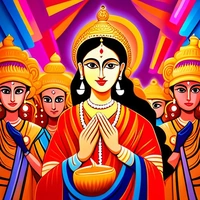
1. Durga Puja
This grand festival celebrates the victory of goddess Durga over the buffalo demon Mahishasura. Visiting Kolkāta during Durga Puja provides an unforgettable experience of vibrant pandals, artistic idols, and community celebrations. The city is adorned with lights, and each locality competes to create the best theme for their pandal.
- Timing: The festival typically takes place in late September or October.
- Crowds: Prepare for large gatherings and festive traffic.
- Photography: Be ready to capture cultural expressions and creativity.
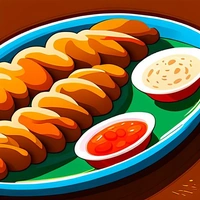
2. Bengali Cuisine
Kolkāta is renowned for its delectable sweets like rasgulla and sandesh, as well as the flavorful fish dishes. Trying the local street food, such as phuchkas and kathi rolls, is a must for any traveler. The distinct use of mustard oil and poppy seeds gives Bengali cuisine its unique taste.
- Spice Level: Some dishes can be spicy, so request milder options if needed.
- Local Recommendations: Ask locals for recommended eating spots for authentic flavors.
- Dietary Preferences: Check about vegetarian and non-vegetarian options available.
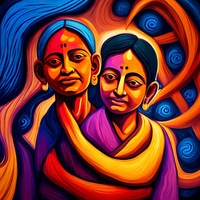
3. Kumartuli Idol Makers
Kumartuli is the artisan’s district where you can see the creation of the clay idols used in various festivals. Wander through narrow lanes to witness skilled craftsmanship that’s been passed down through generations. This is the heart of idol-making, especially for the grand Durga idols.
- Best Time to Visit: Visit a few months before Durga Puja to see the hustle of preparations.
- Photography: Respect the artists while taking pictures.
- Local Interaction: Engage with artisans for deeper insights into their craft.
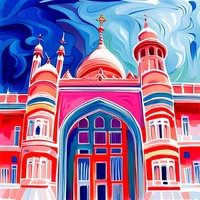
4. Tagore House (Jorasanko Thakur Bari)
The ancestral home of Rabindranath Tagore, this museum preserves the legacy of one of India's greatest poets. It showcases his life, works, and influences on literature and culture. Visiting this place provides a deep dive into the history and achievements of the Tagore family.
- Historical Context: Understand the cultural revolution led by the Tagore family.
- Guided Tours: Consider taking a guided tour for richer insights.
- Timings: Check visiting hours before planning your trip.
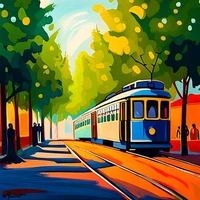
5. Tram Rides
Enjoy one of the oldest tram systems in Asia, which runs through the lively streets of Kolkāta. This mode of transport offers a nostalgic experience and a slow-paced view of the city’s colonial architecture. Trams are part of the city’s identity and connect several prime locations.
- Route Planning: Know tram schedules and routes in advance.
- Ride Duration: Trams are slower, so plan according to your schedule.
- Cultural Experience: Engage with locals to hear stories about Kolkāta's history.
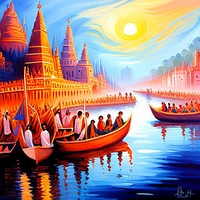
6. Ganga Aarti at Babu Ghat
Experience the serene and spiritual Ganga Aarti performed at evening on the banks of the Hooghly River. This ritual involves priests offering fire to the river while chanting hymns and is a lesser-known yet profound experience in Kolkāta. It's a peaceful way to connect with the city's spiritual side.
- Timing: The ceremony takes place at sunset.
- Deck Seating: Arrive early to get a good viewing spot.
- Participation: You can partake in offering diyas, contributing to the ceremony.
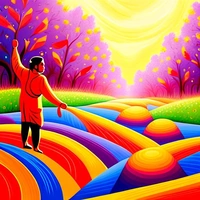
7. Bengali New Year (Poila Boishakh)
Poila Boishakh marks the Bengali New Year, celebrated with traditional music, food, and cultural programs. Witness cultural performances including dance and dramas around the city celebrating Bengali heritage. It’s an opportune occasion to observe traditional attire and festivities.
- Date: Usually held in mid-April.
- Event Schedule: Check local listings for event timings and locations.
- Attire: Wearing traditional Bengali clothes can enhance the experience.
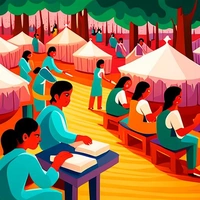
8. Boi Mela (Kolkāta Book Fair)
The largest book fair in Asia, Kolkāta Book Fair attracts bibliophiles from all over the world. It offers a diverse range of books, from rare finds to bestsellers, along with cultural performances and discussions. It's a paradise for readers and those interested in literary culture.
- Dates: Usually held in late January or early February.
- Crowded Event: Be prepared for bustling crowds, especially on weekends.
- Bargain Hunting: Engage in negotiating prices for some unique books.
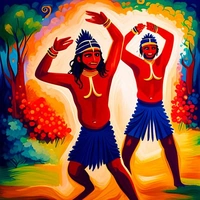
9. Chhau Dance
Originally from Purulia in West Bengal, Chhau is a traditional dance that involves elaborate masks and dramatic storytelling through movements. Watching a live Chhau performance in Kolkāta is a unique cultural experience that portrays mythological stories. The dynamic dance is characterized by its martial arts influence.
- Performance Listings: Check for scheduled shows in local cultural centers.
- Photography: Seek permission for photography, especially of performers in costume.
- Seating: Arrive early for good seats to view the intricate dance moves.
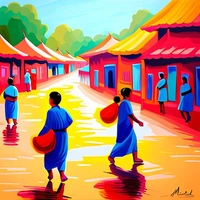
10. Poush Mela
Held in Shantiniketan, a short journey from Kolkāta, Poush Mela is a cultural fair that commemorates the harvest season. The fair involves folk music, dance performances, and local handicraft exhibitions, highlighting Bengali art and culture. This event offers insight into rural life and traditional craftsmanship.
- Transport: Plan your travel arrangements in advance.
- Event Timings: The fair lasts for about three days in December.
- Local Cuisine: Try local produce and delicacies available at the fair.
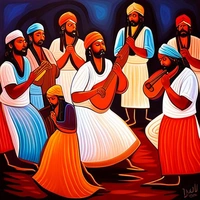
11. Baul Music
Experience the soulful and meditative music of the Baul singers, who express spiritualism and love through their songs. You can often find Baul performances in local cultural centers and during festivals. Their music is unique with its use of instruments like the ektara and unconventional attire.
- Performance Venues: Research performance locations for live events.
- Interaction: Engage with performers to learn about their philosophy.
- Recording: Respect their privacy, especially while recording performances.
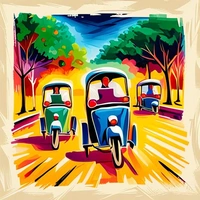
12. Hand-Pulled Rickshaws
Though a dwindling tradition, the hand-pulled rickshaws remain an emblem of Kolkāta's heritage. Taking a ride in these rickshaws is a unique way to explore congested streets and experience the city’s past. It's a reminder of the human stories and endurance within urban life.
- Ethical Considerations: Be mindful of using this service, acknowledging the physical labor involved.
- Short Distances: Best suited for short rides in areas like College Street and Bowbazar.
- Pricing: Agree on the fare before starting the trip.
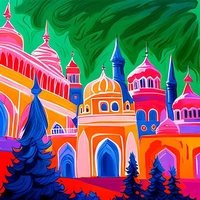
13. Bhuribhoj
Bhuribhoj refers to an elaborate Bengali feast that is traditionally served during weddings and festivals. Participate in a bhuribhoj to enjoy an array of dishes served on banana leaves, including rice, lentils, fish, and sweets. This experience provides a wholesome taste of Bengali hospitality.
- Availability: Look for community events or restaurant offerings for bhuribhoj.
- Dietary Information: Verify the components of each dish for allergens or preferences.
- Cultural Etiquette: Observe and adapt to local dining customs.
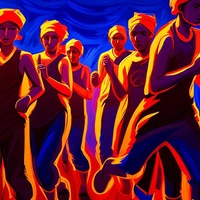
14. Naba Barsho Midnight Marathon
Unique to Kolkāta is the New Year midnight marathon that marks Poila Boishakh, featuring runners in traditional Bengali attire. Runners, locals, and travelers together start the year on a positive note through this energetic event. It fosters community spirit and healthy living.
- Participation: Registration is required for marathon runners.
- Preparation: Train for the run, considering Kolkata’s weather conditions.
- Attire: Wear comfortable running gear, potentially with a traditional touch.
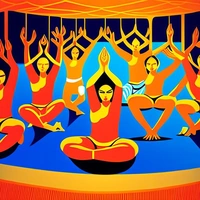
15. Bhakti-Yoga Sessions
Kolkāta offers several centers like the Ramakrishna Mission for Bhakti Yoga, integrating spiritual practices with physical wellness. These sessions provide a concentration on love and devotion, specific to Bengali spirituality. Participating can enhance inner peace and cultural understanding.
- Session Timings: Check schedules and availability in advance.
- Language: Consider language preference for guided sessions.
- Equipment: Yoga mats or required equipment may be provided, but checking is advised.
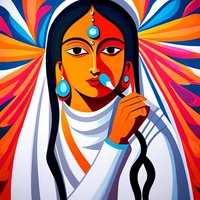
16. Kalighat Paintings
A distinctive form of folk painting originating from the area near the Kalighat Temple. These paintings are known for their bold outlines and vibrant colors, often depicting mythological themes and social messages. Visiting local workshops offers insight into this traditional art form.
- Purchase: Original artworks can be purchased as souvenirs.
- Art Classes: Some workshops offer short classes or demonstrations.
- Interaction: Artists often explain the symbolism behind their work.
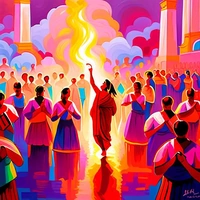
17. Sara Bharatur Utsav (Great Calcutta Festival)
A grand celebration showcasing Kolkāta's diverse heritage through music, dance, and street performances. This festival brings together different cultural groups, creating a mosaic of regional traditions. It’s a lively event that allows immersive local cultural experiences.
- Event Duration: Lasts for a few days, typically featuring different themes each day.
- Performance Schedule: Plan to catch performances of interest.
- Audience Participation: Engage in dance and music segments open to the public.
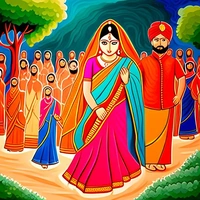
18. Bengali Weddings
Attending a Bengali wedding offers a glimpse into rich traditions, vibrant rituals like Shubho Drishti, and delectable cuisine. The weddings are colorful, with unique customs involving relatives and friends, providing a joyous atmosphere. Witnessing a Bengali wedding captures the essence of local hospitality and celebration.
- Invitation: Generally, these are private events, but connections may invite travelers.
- Timing: Weddings can be multi-day events requiring time commitment.
- Gift Giving: Inquire about appropriate gift-giving customs if attending.
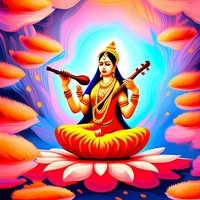
19. Saraswati Puja
Celebrated to honor the goddess Saraswati, the deity of learning and arts, this festival is akin to Valentine’s Day for Kolkāta’s youth. Schools and colleges celebrate with cultural programs, and people dress in traditional yellow attire. It’s an engaging experience for those interested in education-focused rituals.
- Event Date: Usually held at the end of January or early February.
- Participation: Opportunities exist to participate or observe community celebrations.
- Dress Code: Wearing shades of yellow is traditional for attendees.
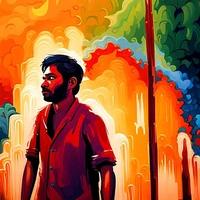
20. Phire Dekha
This unique initiative by theater groups involves the presentation of popular Bengali plays. It offers a chance to experience the richness of Bengali theater, from classic masterpieces to contemporary stories. The performances reflect local life, humor, and societal themes.
- Language Considerations: Performances are primarily in Bengali, translations might not be available.
- Booking: Theaters may require advance booking for popular shows.
- Theater Rules: Follow local etiquette regarding audience conduct during performances.
